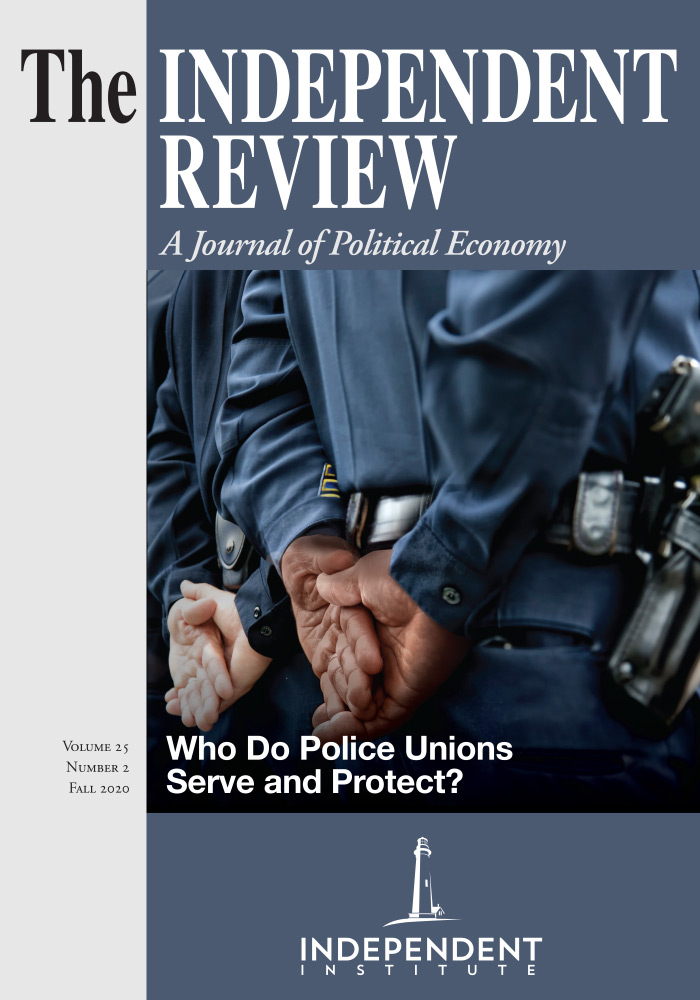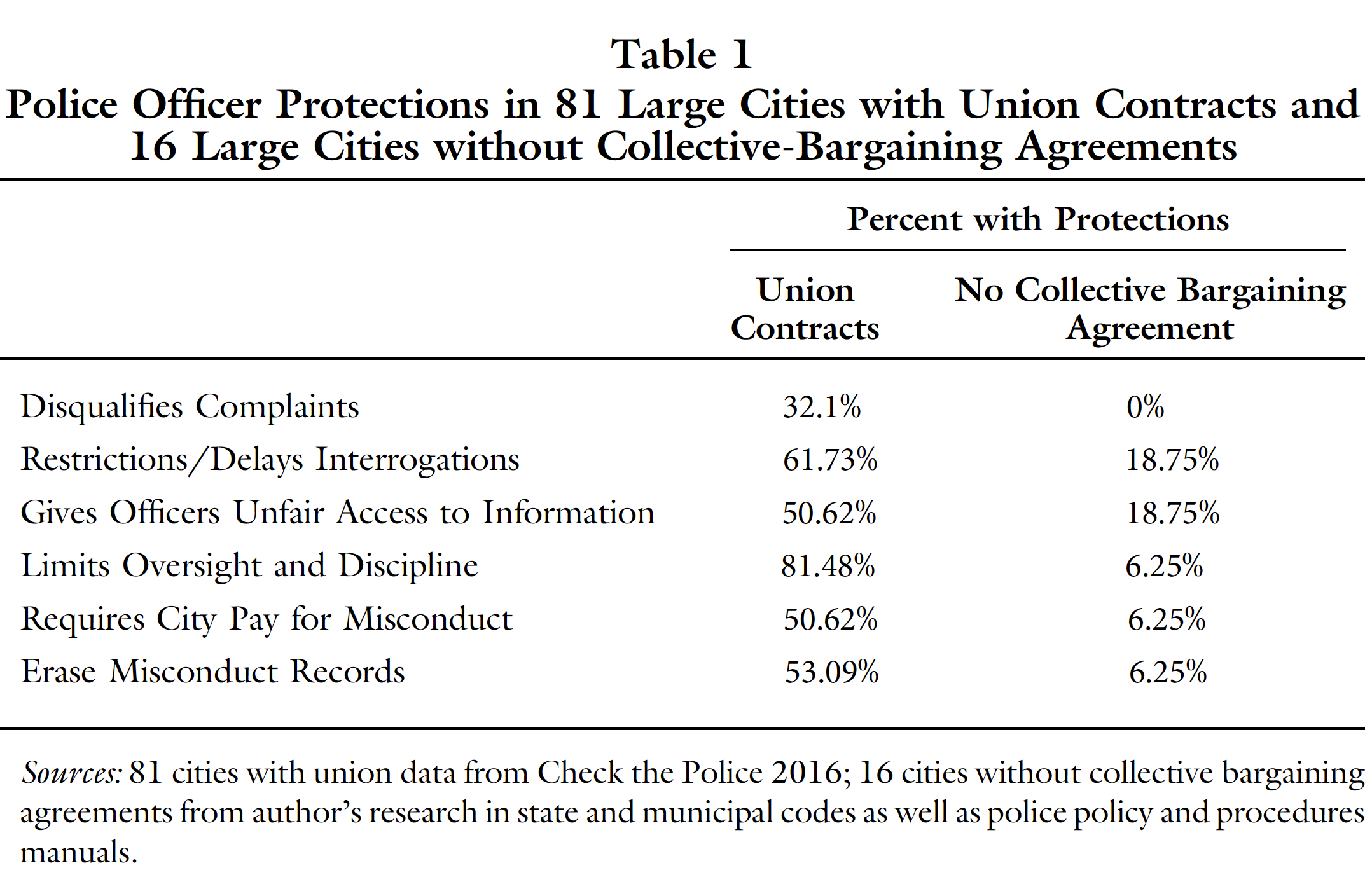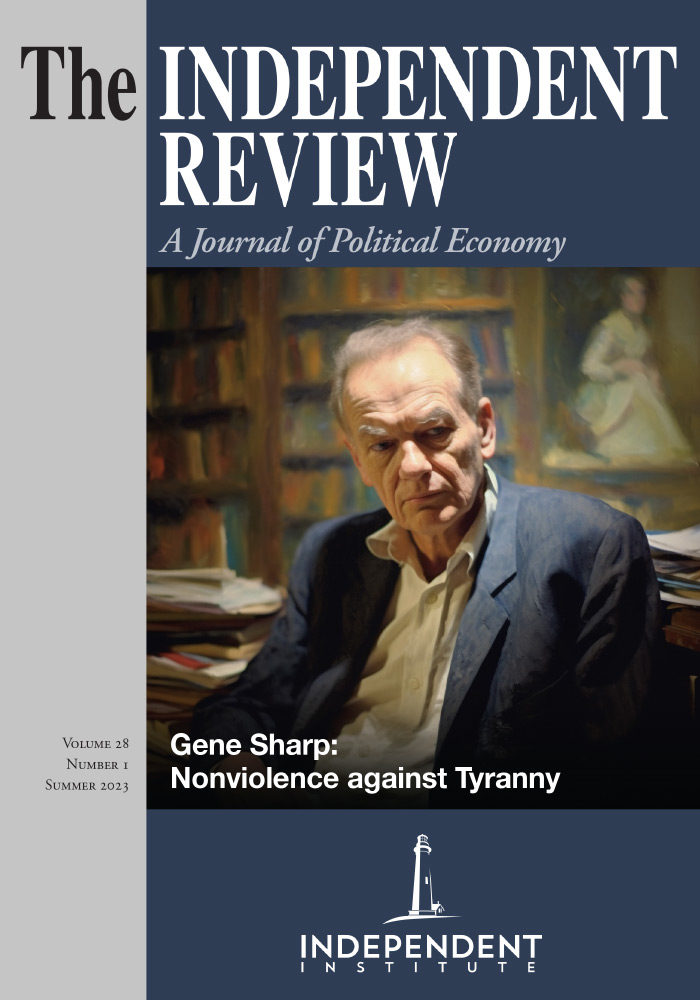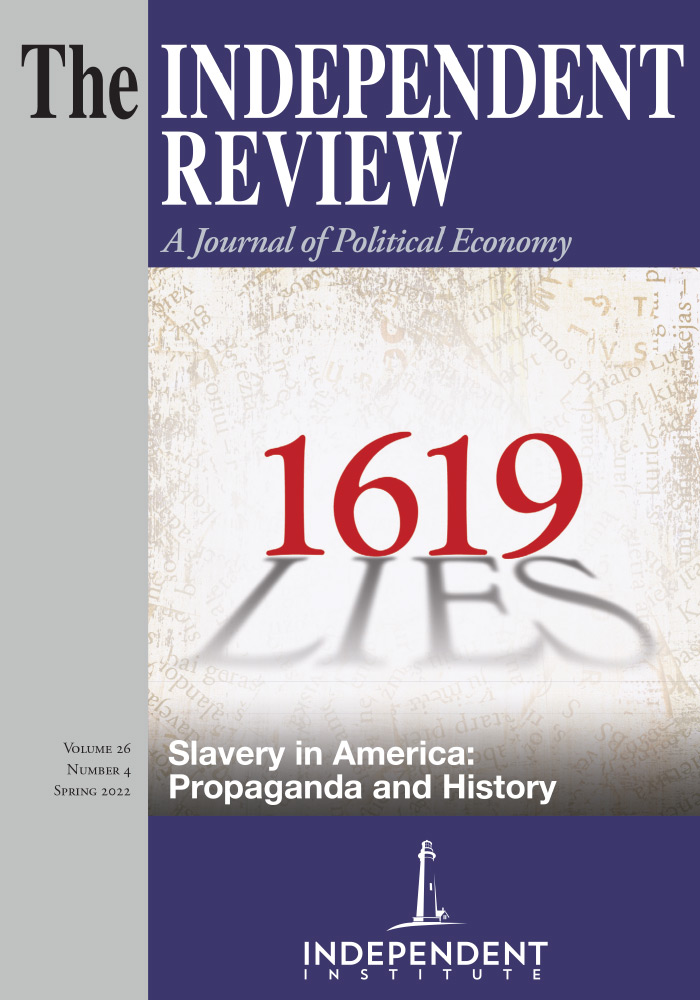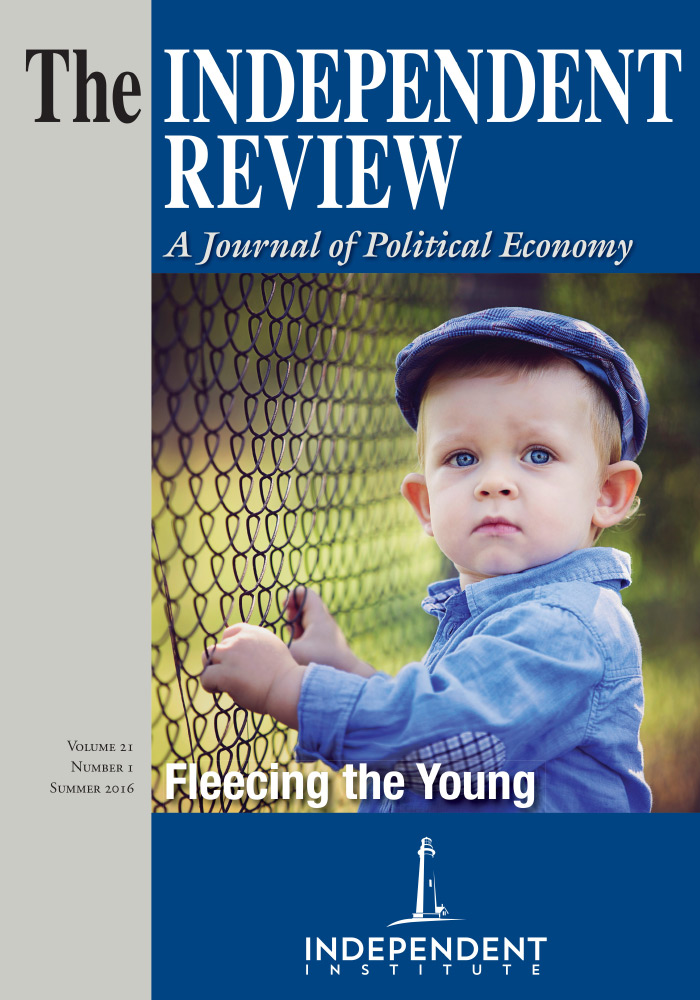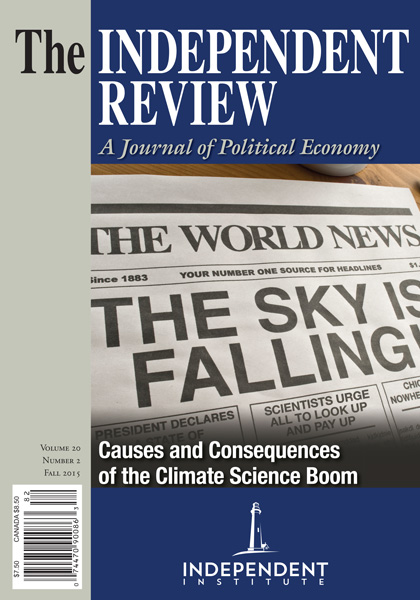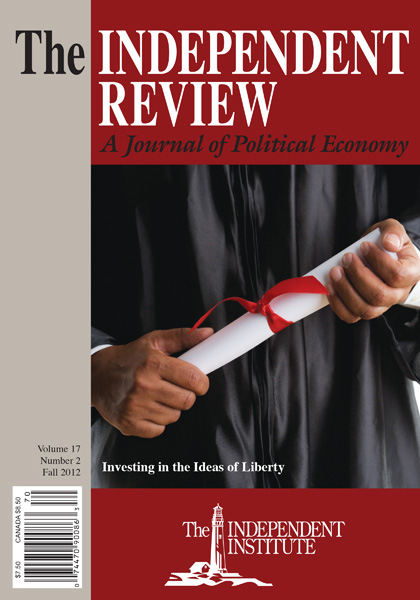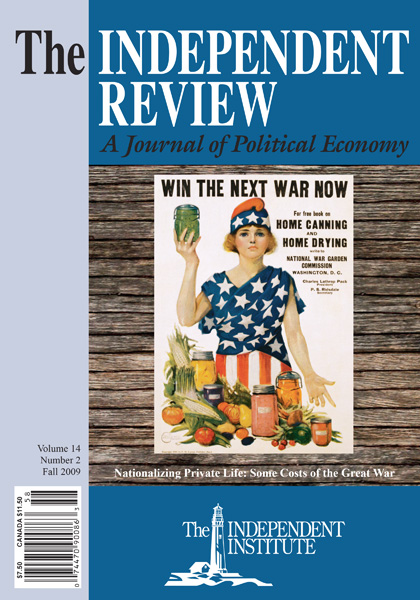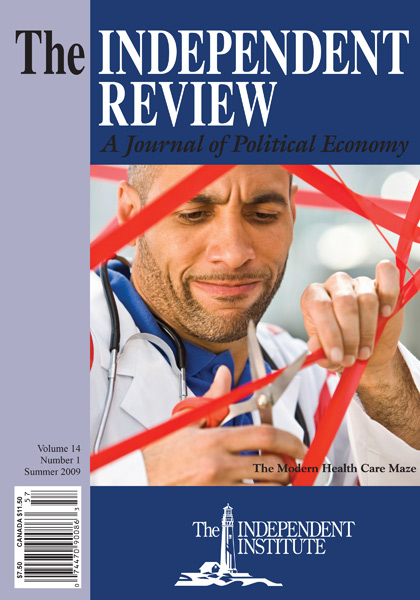Police unions in America were created to remedy grievances such as low pay and arbitrary treatment of the rank and file. Unionized departments have been more successful than their non-unionized counterparts in achieving those goals—and in undermining the ability to hold police officers accountable for misconduct.
Article
On the evening of June 28, 2008, Officer Paul Abel of the Pittsburgh Police Department was celebrating his wife’s birthday. During the celebration, he consumed four beers and two shots of liquor. After leaving the party, Abel claimed to have been sucker punched in his car while stopped at a stoplight. He retrieved his Glock pistol from the trunk of his car and drove in pursuit of his attacker. Driving around the block, he spotted Kaleb Miller, a person he knew from the neighborhood and believed to be the one who punched him. Abel then pistolwhipped Miller on his neck and accidentally shot him in the hand. Witnesses testified that the assailant who punched Abel looked very different from Miller. Abel was later arrested.
Common Pleas judge Jeffrey A. Manning found Abel not guilty of aggravated assault, reckless endangerment, and driving while under the influence of alcohol. Chief Nate Harper, however, considered his conduct to be unacceptable and fired him. With the aid of his employee union, Abel was able to successfully appeal the decision to an arbitrator, who reinstated him to his position as a Pittsburgh police officer within a year of the incident (Sherman and Lord 2009).
In addition to having the benefit of engaging in arbitration to appeal disciplinary actions by his employer, as an officer in the Pittsburgh Police Department and a beneficiary of the contract between the city and the Pittsburgh Fraternal Order of Police, Abel has the benefit of having citizen complaints against him expunged from his record after a certain amount of time,[1] being protected from discipline by civilians, retaining his pay while suspended, and having his legal defense paid for him by the City of Pittsburgh in the event he is sued during the performance of his duties.
Although the fact that police unions[2] have a large impact on police practices and management is widely acknowledged, they have been neglected as a research topic (Walker 2008). The National Academy of Science’s comprehensive review of the literature on policing in America in 2004 contains one reference to police unions: “State laws also regulate the collective bargaining rights of organizations representing police employees. State laws regarding the appeal or arbitration of police officer discipline cases have an impact on accountability in local departments” (Skogan and Frydl 2004, 55). Furthermore, Marcia McCormick notes, “Discussions in the legal literature about the way that police culture contributes to misconduct or efforts to stymie reform mention unions mostly in passing, without considering them separate from law enforcement officials” (2015, 59).
However, the relationship between police unions and accountability[3] has begun to receive more attention in the academic literature. Rachel Harmon, for example, recognizes that in the thirty-six states in which police departments are required to bargain with unions prior to imposing any new rule that could affect the terms or conditions of employment, any internal reform meant to address accountability issues, such as requiring the use of body cameras, must be approved of by the unions. “Collective bargaining therefore functions like an immediate tax on these internal department reforms” (2012, 799). Seth Stoughton argues that many of the rules that affect police practices, such as state laws that govern collective bargaining by public-sector employees, are incidental in that they are not intended to have any effect on police practices. The incidental effects Stoughton considers police unions to cause include rank-and-file officers embracing a more legalistic approach to policing and collective bargaining agreements specifying grievance procedures that “both discourage and frustrate attempts to discipline individual officers” (2014, 2211).
Stephen Rushin (2017) compiled union contracts for 178 cities with populations greater than 100,000, noting that these contracts cover about 40 percent of municipal officers in states that allow police to collectively bargain. He found that 156 of the 178 contracts studied contained at least one provision that make it more difficult to legitimately discipline officers engaged in misconduct. Some empirical research suggests that provisions in these collective-bargaining agreements may result in greater amounts of misconduct. Dhammika Dharmapala, Richard McAdams, and John Rappaport (2017) exploited a quasi-experiment in Florida where in 2003 the state Supreme Court extended to sheriff’s deputies the collective-bargaining rights already enjoyed by municipal police. Employing a difference-in-difference approach, they found that collective-bargaining rights led to a 27 percent increase in complaints of misconduct against the typical sheriff’s office.
This paper aims to explain why politicians would find protections an attractive way to compensate police officers, to provide evidence that unionized departments have been more successful in obtaining protections for their members than have nonunionized departments, and to explain how these protections affect the mechanisms for disciplining officers.
The first section provides a brief history of the development of police unions in America and an explanation of why they have obtained the aforementioned privileges. In the second section, I discuss how the privileges obtained by unions undermine the ability of the criminal justice system, civil law, and civilian oversight to hold officers accountable and compare the prevalence of these privileges in large police departments with and without collective-bargaining agreements. The final section looks at the privileges that inhibit the ability of police management and police officer standards and training commissions to discipline officers.
An Economic Analysis of Police Unions
American municipal police officers started to join unions in the late nineteenth and early twentieth century in order to improve pay and working conditions as well as to provide mutual assistance. The Boston Police Strike in 1919 is commonly cited as the event that retarded this process for several decades. Governor Calvin Coolidge responded to the violence during the strike and the looting after it by calling in the National Guard, whose attempt to restore order resulted in nine deaths and twenty-three wounded. Widespread public skepticism regarding the desirability of police unions led to the collapse of all American Federation of Labor–affiliated police unions.[4] Police unions generally did not gain a permanent foothold in American police departments until the 1960s, an effort that Kevin Keenan and Samuel Walker claim was partially a response by rank-and-file officers to U.S. Supreme Court decisions that hampered their ability to fight crime, to civil rights protests against police brutality and discrimination, and to management practices that kept officers out of the departmental decision-making process (2004, 196). Hervey Juris and Peter Feuille cite four factors that served as the impetus for the growth of the police union movement: increased public hostility, lawand- order demands on the police, low pay, and poor personnel practices (1973, 19). “Public hostility” includes the aforementioned Supreme Court decisions, public protests, and calls for civilian review boards. “Law-and-order demands” refer to the increasing levels of crime at the time and the expectation that containing it was the responsibility of the police. Poor personnel practices cited by officers include “the lack of internal civil and constitutional rights for officers being investigated for misfeasance and malfeasance” and “lack of a functional grievance procedure” (Juris and Feuille 1973, 21). Unionization was considered an effective means for addressing these concerns.
Why might these issues arise in the first place? To explain, it may be helpful to highlight some relevant differences between the private and public sectors. In long-run competitive equilibrium, a worker is paid his discounted marginal product. However, this is not necessarily true of workers in the public sector. One thing we can say for certain is that a public-sector employee is paid at least his opportunity cost, but this has no necessary relationship to his marginal productivity in the public sector. Police departments are bureaucratic. One of the defining features of bureaucracy is that it, as an institution, has no profit-and-loss accounting and therefore cannot engage in rational economic calculation (Mises [1944] 2007, 48). Being unable to measure the value of output, police managers are also unable to determine whether the wages paid to police officers reflect their marginal productivity.[5] The inability to measure the value of police output is also relevant in regard to the issue of the demand placed on police to control crime. Because police are a common-pool resource (Rasmussen and Benson 1994; Benson 1998) for which no price is charged, consumers of police services have little incentive to economize on their use of police resources. The result is that more policing is demanded than can be supplied, putting a strain on police resources.
In addition, given their inability to engage in economic calculation and the fact that the revenue does not come from market exchanges, police managers have more discretion than managers in the private sector when it comes to personnel practices; that is, if the police manager creates a work environment that is suboptimal from the perspective of the rank and file, he faces little financial repercussion from losing employees to competitors in the labor market.[6] But if he creates a work environment that is too accommodating for officers at the expense of other concerns (such as by neglecting to faithfully investigate accusations of corruption or other types of misconduct), he also faces relatively less repercussion than would a manager in the private sector. There are constraints at both ends of the spectrum, including through the ballot box (more specifically through elected officials’ ability to replace police management) or through citizens voting with their feet, but the greater discretion allowed to police managers creates a wider range over which the price paid for police labor (including the value of working conditions) can be bargained over. Unlike in Charles Tiebout’s (1956) model, moving between jurisdictions is not costless, so there is some slack between consumers’ optimal level of police service and the point at which they will be willing to move to another service provider. This comparatively greater range over which to divide resources opens up a role for police unions to obtain benefits that officers acting individually may not be able to attain. The Florida Police Benevolent Association, for example, describes itself as “a politically proactive labor organization that represents law enforcement officers in negotiations for wages, benefits and terms of their employment” and states, “We give law enforcement officers a voice in the day-to-day affairs of their agencies and we fight to win them better pay, benefits and working conditions”(2017).
Police employees do not enjoy the benefits of competition between employers to the extent that employees in the private sector do, particularly because their skills are relatively specific to public-sector employment. Absent civil service protections, police managers will enjoy greater discretion regarding issues such as applying discipline, and thus it is understandable why police unions would bargain or lobby for protections. Why, however, would the politician negotiating on behalf of the city be willing to offer such protections? Whereas officers gain protection from arbitrary discipline and greater job security, politicians benefit from having a way to compensate police officers in a manner that is budget neutral, at least in the short-run. The cost of these protections may manifest in the future, possibly through the inability to discipline an officer whose misconduct creates greater future liability costs for the city.
This process was clearly illustrated in Chicago. At a time when the city was facing budget shortfalls, the Chicago Fraternal Order of Police, which engages in collective bargaining on behalf of the officers of the Chicago Police Department, was willing to accept greater protections for officers in lieu of higher pay (Chase and Heinzmann 2016). Among these protections are rules that make it more difficult to discipline officers, such as requiring a “cooling-off” period after an officer-involved shooting before the officer(s) may be interviewed as well as a prohibition against internal investigations based on anonymous complaints and the requirement that officers be informed of the complainant’s identity. Chicago’s Police Accountability Task Force (2016) has since recommended that these types of protections be removed or revised (see also Emmanuel 2017). However, from the police officers’ perspective, these protections can be considered a form of compensation. When the city’s lawyers asked Dean Angelo Sr., the president of the Chicago Fraternal Order of Police, what it would take to remove the provisions identified by the task force, he replied, “Bring the checkbook” (Newman 2017).
It should also be noted that police unions offer their members noncollective benefits. According to Mancur Olson (1965), for a labor union to sustain itself, it must have at least one of the following properties: powers of coercion or the ability to offer noncollective benefits. Police unions were recently dealt a blow in their powers of coercion as a result of Janus v. American Federation of State, County, and Municipal Employees, Council 31 (No. 16-1466, 585 U.S. ___, 2018), in which the U.S. Supreme Court held that public-sector employees who are not members of a union yet are represented by a union designated as the exclusive representative of a bargaining unit cannot be compelled to pay an “agency fee,” which, collected from all members, pays for the union’s collective-bargaining activities but not for political or ideological projects.[7] The Court decided that requiring such fees amounts to compelled speech in violation of the First Amendment. However, in addition to the benefits achieved through collective bargaining, police unions also offer noncollective benefits, which helps explain why police unions can still have a presence in right-to-work states, such as Florida. An illustration of this is the case of former Broward County sheriff’s deputy Scot Peterson, who gained national attention after his inaction during the Parkland school shooting. Although he was covered by the collective-bargaining agreement negotiated by the Broward County Sheriff’s Office Deputies Association, he was not a dues-paying member. Because of this, the union refused to provide him legal representation (Boehm 2018).
The protections obtained through police unions have increased the compensation of police officers by improving their job security. These protections involve a trade-off, however, in that although they increase the compensation of police officers, they also increase the costs of holding police officers accountable for disciplinary problems. The next section explains specifically how these privileges undermine most formal avenues of disciplining police officers and compare their relative prevalence in police departments with and without collective-bargaining agreements.
Privileges and External Discipline Mechanisms: Criminal Law, Civil Liability, and Civilian Oversight
This section describes how protections contained in union contracts, municipal and state codes, and police policy and procedures manuals undermine various methods of holding police officers accountable for misconduct. It also examines the relative frequency of these protections in the largest departments with and without collective bargaining agreements. The data on these protections come from three sources: Check the Police 2016, Rushin 2017, and my own analysis of state statutes and police policy manuals. In its review of the police departments of the 100 largest cities in the United States, Check the Police (2016) found that 84 of them have collective-bargaining agreements, of which it was able to obtain copies of 81 agreements through Freedom of Information Act (FOIA) requests. The organization’s codification of privileges in these 81 cities is listed in table 1. Rushin’s (2017) sample was of police departments serving cities with more than 100,000 residents. Through FOIA requests, examinations of municipal government websites, and online searches, he obtained contracts for 178 municipalities. For comparison, I analyzed the municipal and state codes as well as the police policy and procedure manuals available online of the 16 largest cities without collective-bargaining agreements in order to determine what protections their police departments enjoy. These data are displayed in table 1. The relatively small sample of the cities without collective-bargaining agreements is due to the fact that large-city police departments without a collective-bargaining agreement are comparatively rare. According to the most recently available Law Enforcement Management and Administrative Statistics Survey, 93 percent of departments serving populations of 1,000,000 or more have a collective-bargaining agreement. The figure for departments serving populations between 500,000 and 999,999 is 90 percent, and for those serving populations between 250,000 and 499,999 it is 76 percent (Reaves 2015).
Criminal Law
One way that unions insulate police from discipline is by protecting their members from criminal prosecution. Many collective-bargaining agreements include clauses with due process privileges for officers who are being investigated for conduct that may result in discipline by their employer as well as for criminal misconduct. These clauses outline provisions such as restrictions on how soon after an incident an officer may be interrogated,[8] who and how many may perform the interrogation, the manner in which the investigation takes place,[9] the incentives that interrogators may offer, and the requirement that all other witnesses be questioned first. However, even though these protections are often only supposed to apply to internal investigations and not criminal investigations, they often de facto apply to the latter in cases where the department investigating the officer is the same department for which he works. The only circumstance in which these provisions would not apply is if an outside agency, such as the U.S. Department of Justice, were to conduct the investigation.
These protections afforded to police officers have the potential to impede criminal investigations. In the case of Freddie Gray, who was killed while in the course of being transported to jail, the officers involved could not be forced to give a statement for ten days after the incident, time that is allowed ostensibly for the purpose of finding a lawyer (Hager 2015).[10] This is vastly different from how a police investigation is usually conducted, where suspects are asked for a statement as soon as possible because their testimony can be corroborated or impeached by evidence already known to police or later discovered. Allowing suspects to wait for longer periods before giving a statement allows them to tailor it according to the facts that are later revealed. Of the 178 collective-bargaining agreements reviewed by Rushin (2017), 50 delay interrogations of police officers. None of the 16 largest police departments without a collective bargaining agreement offer such delays.
Certain interrogation tactics used on civilians are prohibited when the subject of the investigation is a police officer. In the latter case, the collective-bargaining agreement for Jacksonville, Florida, for example, limits the number of interrogators to one, thus precluding any use of a “good cop, bad cop” interrogation tactic. It also requires that interrogation periods be limited to a “reasonable period” and “allow for personal necessities and rest periods as reasonably necessary.” In addition, some union agreements limit the kind of language that can be used in an interrogation. The San Antonio, Texas, police union contract, for example, prohibits “offensive language” and states that “[n]o promise of reward shall be made as an inducement to answering questions” (The City of San Antonio 2009). Of the 81 largest police departments with a union contract, 50 have provisions that restrict interrogations. Three of the sixteen largest departments without a collective-bargaining agreement restrict interrogations.
None of these protections is extended to nonpolice. This is not, however, to argue that they should not be; aggressive interrogation tactics have resulted in the false conviction of a number of factually innocent people (Gross and Shaffer 2012).[11] However, even if police officers were treated similarly to nonpolice, the criminal law would be ineffectual for disciplining officers who engage in misconduct that does not constitute a crime.
Civil Lawsuits
Civil lawsuits are another possible consequence of misconduct. Lawsuits can be filed in state courts under common-law torts such as assault or in federal court under Title 42, section 1983 (the Civil Rights Act of 1871), of the U.S. Code for violation of constitutional protections (Cheh 1996). According to Richard Emery and Ilann Maazel, “civil litigation is very effective at recovering money compensation. The great majority of civil rights suits actively pursued under 42 U.S.C. § 1983 conclude with a settlement for money” (2000, 589).
Joanna Schwartz (2014) sent public-records requests to the 70 largest law enforcement agencies in the United States as well as to 70 randomly selected small to midsize agencies regarding the total number of civil cases filed against sworn officers from 2006 to 2011, the total dollars paid in judgments and settlements, and what portion of those judgments and settlements the officers personally had to pay. Schwartz found that of the 44 largest agencies that responded, officers paid 0.02 percent of the total dollars awarded to plaintiffs in misconduct lawsuits. Of the 37 smaller agencies for which she was able to obtain data, officers contributed nothing over the period of study. In some cases, she found that officers were indemnified contrary to policy. New York City, for example, is not to provide indemnification for misconduct due to intentional wrongdoing or recklessness. Likewise, Las Vegas prohibits indemnification for “wanton and malicious” action (Schwartz 2014, 921). Despite the implication in the policies’ language that punitive damages won’t be indemnified, Schwartz states that contrary to law New York City and Las Vegas have indemnified officers. Even in El Paso, Texas, which reported a practice of never indemnifying officers, no officer paid a judgment against himself during the period of study.
Requirements for governments to indemnify officers may be through statutes or union contracts. Of 81 collective-bargaining agreements of the 100 largest cities in America, 40 have provisions that require cities to pay for the costs of police misconduct, including legal fees, civil judgments, and paid leave while an officer is under investigation (Check the Police 2016). Of the 16 largest departments without collective-bargaining agreements, one was found to have a policy of indemnifying officers. However, given the contradictions between policy and practice when it comes to indemnification, it is unclear whether officers in departments with collective-bargaining agreements are systematically enjoying indemnification at a higher rate than officers in departments without collective-bargaining agreements. In Schwartz’s data set, none of the officers in the handful (six) of departments without collective-bargaining agreements was forced to personally contribute in civil judgments against them.
Civilian Oversight
The first officially established body of civilian oversight of a police department was the civilian review board created in Washington, D.C., in 1948.[12] This body, called the Complaint Review Board, did not have much power and investigated only fifty-four cases between 1948 and 1964 (Walker 2006). However, civilian oversight did not become a major issue until the 1960s, when the civil rights movement began to push back against police misconduct in most major cities. By 2006, more than one hundred bodies of civilian oversight had been created. Police unions have tended to oppose civilian oversight. The head of the Boston Police Patrolmen’s Association, Donald L. Murray, stated that the creation of a community appeals board indicated “the ruination of the Boston Police Department. I’m very disheartened . . . and I feel I’ve been raped” (qtd. in Iris 1998, 220).
Some police unions were able early on to forestall the creation of civilian oversight bodies or even have them abolished, as was the case in New York City and Philadelphia in the 1960s, though they have been reinstated in both cities since then (Bouza 1985; Walker 2008). More recently, however, unions have been less able to prevent the creation of civilian oversight bodies. Steve Wilson and Kevin Buckler (2010) found in their study of Law Enforcement Management and Administration Survey data that departments that engaged in collective bargaining were no more likely to have citizen oversight than those that did not. The main impetus for the creation of citizen oversight in most cases is a well-publicized incident of police violence, usually against a minority. After such an event, police unions are typically unable to overcome the political will to create a body of civilian review.[13] This does not mean, however, that they are unable to use their influence to limit the power of these bodies.
One way in which they do so is by lobbying to limit the powers of civilian oversight to independently investigate complaints (some review boards may only review investigations performed by internal affairs departments), to subpoena witnesses, or to recommend disciplinary action. In some instances, due to collective-bargaining agreements, the creation of civilian oversight must be approved by the police union (Walker 2008).[14] This was the case in Spokane, where Washington State labor laws required that the creation of the Office of the Police Ombudsman be negotiated with and approved by the Spokane Police Guild (Steele 2008). The ombudsman was chosen by a five-member committee, two of whom were selected by the guild, and if the guild did not like the person chosen by the committee, it could file a grievance. This was not Spokane’s first attempt at civilian oversight. The city previously had an all-volunteer Citizens Review Commission. That commission, however, had not reviewed a single case of alleged misconduct in the decade prior to the creation of the Ombudsman Office.
Some police unions have succeeded in making civilian review boards practically irrelevant. According to their negotiated agreement, police officers in Pittsburgh, for example, cannot be compelled to testify before a civilian review board. The Florida Supreme Court struck down the Miami Civilian Investigative Panel’s ability to subpoena officers under investigation, claiming the ability violates the Florida Police Bill of Rights (Smiley 2017). Such a power, however, is important to a review board’s functioning: after the Denver Police Protective Association advised members to ignore subpoenas issued by the civilian review board, a Denver County judge upheld the board’s subpoena power, acknowledging that without it the board would be “gutted” (Iris 1998, 221).[15] According to Rushin (2017), 42 of the 178 collective-bargaining agreements he examined contain provisions limiting civilian oversight in some manner. According to my own study, none of the 16 departments without a collective bargaining agreement has policies or statutes limiting civilian oversight. By limiting the outside options through which misconduct can be investigated, more reliance is placed on policing organizations to police themselves. But how unions have impaired even these police institutions’ ability to fulfill this role is covered in the following section.
Privileges versus Management: Internal Disciplinary Action
Internal Discipline
One way union contracts limit police management’s ability to discipline rank-and-file officers is the mandatory purging of complaints against an officer, even those that have been substantiated, from his record after a specified period of time. Of the 178 contracts Rushin (2017) examined, 87 have provisions that erase records of complaints and misconduct (see also Check the Police 2016), and only of one of the 16 largest cities without collective-bargaining agreements has a similar protection.[16] For example, after eighteen months the Baton Rouge Police Department erases complaints that were “not sustained” as well as ones that were “sustained” if no similar complaints are filed (Agreement between the City of Baton Rouge and Baton Rouge Union of Police Local 237 2014).
However, such a record, even of complaints that could not be substantiated, may be helpful for management in identifying problem officers for additional training or in justifying termination to an arbitrator. Formal investigation of citizen complaints is expensive and even when done rigorously tends to produce a low substantiation rate (Liederbach et al. 2007; Prenzler 2009). Complaints often have no evidence on which to make a decision other than the words of the officer and the complainant. In these cases, investigators must return a finding of “not sustained.”[17] Thus, a low substantiation rate is not necessarily indicative of anything. This being the case, however, simply a record of complaints received against an officer, even unsubstantiated ones, can be evidence of a pattern of misconduct or abuse and thus helpful for managers.[18] Indeed, this type of data is crucial for the implementation of early-intervention systems meant to correct officer behavior (Walker and Archbold 2014). Research of complaints to the Chicago Police Department found that citizen complaints can predict future allegations of misconduct by employees within the department and the likelihood of civil rights litigation (Rozema and Schanzenbach 2016).
Some departments also have provisions requiring that certain information be provided to an officer prior to investigation. In 34 of the 178 contracts Rushin (2017) examined, there is the requirement that an officer be notified of all of the evidence against him or her prior to being investigated, which is the case for two of the 16 largest cities without collective-bargaining agreements. This requirement obviously precludes police management from using a number of tactics for rooting out corruption and other misconduct, such as integrity tests and undercover stings (Prenzler 2009). Other information requirements may have a chilling effect on complainants. Corpus Christi, Texas, among other cities, requires that the officer be given the name of the complainant prior to being interrogated, which may discourage targets of police harassment from coming forward.[19]
In 25 of the 100 largest cities in the United States, there are agreements that disqualify complaints if they are not submitted in a certain amount of time or that prevent an officer from being disciplined if the investigation is not completed within a particular timeframe, some as short as ninety days (Check the Police 2016).None of the 16 largest cities without collective-bargaining agreements disqualifies complaints based on time constraints.
Unions’ contractual protections become especially relevant if disciplinary action is appealed through arbitration, a provision given to officers in 115 of the 178 contracts Rushin (2017) examined as well as in one of the 16 largest departments without a collective-bargaining agreement.[20] Some protections have the potential to contribute to arbitrators overturning the discharge of officers. Tyler Adams (2016) analyzed ninety-two arbitration decisions when a police officer appealed termination between 2011 and 2015, which were almost exclusively in jurisdictions where a collective bargaining agreement allowed disciplinary decisions to be appealed to independent arbitration.[21] Of these ninety-two decisions, arbitrators overturned the decision to fire the officer in forty-three cases (46.7 percent). Officers’ “disciplinary records were raised by one or both parties in nearly every analyzed decision. A positive work history can be helpful to persuade an arbitrator to overturn an officer’s discharge” (Adams 2016, 138). Adams provides examples of how officers who were discharged for causing a fleeing suspect’s death by ramming their vehicle or for repeated on-duty sexual harassment of citizens were reinstated simply because they have a good work history, whereas officers terminated for similar reasons are less likely to be reinstated if they do not have a positive history. When adverse disciplinary history is eliminated from officers’ records, it will not be available to arbitrators. In some cases, collective-bargaining agreements may directly prohibit the consideration of prior discipline. Adams mentions one case where an officer fired for firing her weapon at a fleeing suspect was reinstated because management partially based their decision to terminate on previous disciplinary decisions against the officer made more than one year earlier, which was prohibited in the collective bargaining agreement. Nine of the forty-three overturned cases had that result because of such procedural errors.
The most frequent reason (twenty-one of forty-three cases overturned) an arbitrator cited for overturning a discharge is the department’s failure to meet the required standard of evidence to prove the officer’s alleged offense. Of these decisions to overturn, the majority (86 percent) were due to inadequate investigations by the department (Adams 2016). Unfortunately, Adams does not report the precise reasons for inadequate investigation or what role contractual protections making investigations more difficult may have played in terms of internal affairs’ or management’s ability to gather evidence. Adams’s findings are supported in other instances. The City of Oakland, California, for example, underwent a court-ordered investigation into why disciplinary decisions were being overturned by arbitration 75 percent of the time (“The Arbitration of Police Discipline” 2015).[22] The report noted that arbitration reversals were due to, among other things, inadequate investigation and poor representation by the Oakland City Attorney’s Office (Swanson 2015). Reinstatement is common enough that some union contracts, such as the one in Columbus, Ohio, prohibit an officer’s prior record of being fired and reinstated from being used as a factor in determining the propriety of disciplinary action in later investigations.
Courts reviewing arbitration decisions have recognized that the public interest is not being represented in the arbitration process and that in some cases it is independent arbitrators rather than courts that have the ability to decide what constitutes excessive force. The Supreme Judicial Court of Massachusetts reviewed an arbitration decision in which an officer was fired for using a choke hold in the course of arresting an unarmed suspect on the charge of disorderly conduct and for making false statements in the subsequent investigation. The arbitrator decided to reinstate the officer with back pay. In its decision, the court wrote:
We are troubled by the prospect that any use of force not explicitly prohibited by a rule of conduct is essentially unreviewable. It is difficult to fathom why we elevate the values of “expediency” and “judicial economy” so high as to eclipse the substantive rights of citizens who have no seat at the bargaining table.We recognize, of course, that public employers may or may not choose to adopt rules for the protection of the public from the excessive use of force. Without the benefit of such rules, however, arbitrators remain free to find reasonable any level of force that does not explicitly require termination. Absent legislative authority for a broader review of arbitration decisions, we are constrained in our ability to review the use of excessive force by public safety officials.[23]
Finally, some union contract agreements explicitly prohibit officers from being disciplined by civilian oversight bodies, but none of the 16 cities without collective bargaining agreements do. However, there currently is no civilian review board in the United States with the power to discipline police officers. They may only make recommendations to police management. In the future, however, political demand for such a power could develop if police departments are seen as unable or unwilling to adequately investigate and discipline officers.
Revocation/Decertification
Another method of ensuring police accountability is called “license revocation” or “decertification,” which is designed to prevent an officer who is fired for misconduct from obtaining another law enforcement job elsewhere. States began authorizing license revocation in the 1960s; currently, forty-six states authorize decertification.[24] In most of those states, a Peace Officer Standards and Training (POST) Commission[25] sets basic and continuing education requirements (Goldman 2016). The majority of these POST Commissions also have the authority to hold administrative hearings and impose sanctions upon peace officers, typically suspensions or revocations (Goldman and Puro 2001). The use of revocation has grown over time ( Goldman and Puro 2001; Goldman 2003, 2012). Between 2012 and 2014, the State of Georgia decertified 1,727 officers, and as of mid-December 2019 forty-five agencies with the authority to revoke[26] have added 27,696 names to the National Decertification Index (NDI), a national database of decertified officers (International Association of Directors of Law Enforcement Standards and Training 2019).[27]
Different states take three main approaches to decertification (Goldman 2012). The first is decertifying an officer after he has been criminally convicted. Some states will do so only for felonies, some for felonies and misdemeanors, and some for felonies and certain misdemeanors, in particular those involving “moral turpitude,” such as sexualrelated misconduct. Obviously, the extent to which unions are able to decrease the likelihood of members being convicted undermines the purpose of decertification in these states. Roger Goldman finds such an arrangement unacceptable and asks, “What other occupation or profession requires a criminal conviction before the license can be revoked?” (2012, 151).[28] Sixteen states require a criminal conviction for an officer to be decertified (Goldman 2012).
The second approach involves an administrative hearing before an administrative law judge to determine whether the officer has engaged in a statutorily prohibited act. Some states are more specific regarding what can be considered grounds for revocation (such as Illinois, where the only basis for decertification is perjury in a murder trial), whereas others have broad and vague definitions of prohibited conduct, such as “conduct unbecoming an officer.”
The third approach is to revoke an officer’s license when he has been fired or resigns in lieu of being fired. However, incorporating this approach can be difficult in practice, particularly due to union agreements that make firing a problem officer sufficiently burdensome.
There is variation in the extent to which POST Commissions’ decisions are independent from the decision making of police departments and arbitrators. Some are completely independent. In Arizona, for example, the POST Commission may still revoke a fired officer’s certification even if a civil service board has reinstated him (Goldman and Puro 2001). Other states, such as Washington, require that the POST Commission may not revoke certification if the officer is reinstated and a “final” decision has been made. In these cases, it is not uncommon for chiefs to choose to incentivize the officer to resign rather than to terminate the officer, who would likely be reinstated by the civil service board (sometimes comprising individuals with close ties to the union) anyway (Goldman and Puro 2001). Florida splits the difference: if an arbitrator finds that misconduct never occurred, the Florida Criminal Justice Standards and Training Commission cannot proceed with decertification (Conley 2018). However, if the arbitrator finds that the misconduct did occur but considers termination too severe a penalty, the Florida Standards and Training Commission can still decertify.
Police officer unions have been successful in reducing the range of conduct for which POST Commissions may discipline officers, as was the case for unions and sheriff’s departments in Florida, and in repealing the POST Commission’s ability to cancel certificates, as occurred in California (Goldman and Puro 2001; Goldman 2016). In the states that do not have revocation powers, this is largely due to the influence of the police unions (Human Rights Watch 1998).
Revocation can be a powerful method for making sure that officers with a history of abuse are not rehired. However, this works, absent a conviction, only when law enforcement agencies notify POST Commissions of firings. But given the relative difficulty of prosecuting a police officer and the power of unions to prevent or overturn terminations, problem officers are sometimes able to avoid decertification.
Conclusion
Police unions were created in order to address issues that arose due to the bureaucratic and monopsonistic nature of police departments, in particular perceived low pay and poor working conditions (including being subject to arbitrary discipline or firing by superiors). But the majority of police unions in the largest cities through their collective bargaining agreements have been successful in obtaining higher compensation for their members in the form of protections that raise the cost of most of the formal means of disciplining them for misconduct.[29] These unionized departments have been more successful than comparable nonunionized departments in achieving these forms of compensation.
One implication of the political economy of police protections is the redistribution of who bears the costs of compensating police. As mentioned in the case of the Chicago police, union representatives have expressed a willingness to give up protections in exchange for higher monetary compensation. Monetary wages are borne by the taxpayer. If it is the case that these protections lead to lower costs for taxpayers but higher levels of police misconduct, part of the cost of compensating police officers is redistributed from taxpayers to victims of police misconduct (as well as to future taxpayers in the case of successful civil lawsuits).
This situation raises the question of the desirability of having a single police bureaucracy serve diverse urban populations with heterogeneous preferences. Do the gains from economies of scale in policing outweigh such costs? Empirical research suggests that returns to scale in policing are maximized when serving relatively small populations (Ostrom and Whitaker 1973; Gyimah-Brempong 1987; Southwick 2005; Lithopoulos 2015; Fegley and Growette Bostaph 2018).However, such a question can be definitively answered only when there is an actual market for output rather than the proxy measures on which research has relied thus far. Because bureaucratic police departments can’t engage in economic calculation, they are also rendered unable to determine the optimal scale at which to provide their services.
Ultimately, an important implication for police reform is that if these protections are deemed undesirable because they allow individual police officers who would otherwise be disciplined or fired for misconduct to continue in their role as police officers, as has been argued by the Chicago Police Accountability Task Force, then removing these protections will likely require that police officers be compensated by other means. Compared to the typical transitional gains trap (Tullock 1975), such a political exchange may have a greater chance of succeeding with the presence of a collective-bargaining entity that can lower transaction costs. The question is whether taxpayers are willing to pay in order to lower the costs of holding police officers accountable.
References
Adams, Tyler. 2016. Factors in Police Misconduct Arbitration Outcomes: What Does It Take to Fire a Bad Cop? ABA Journal of Labor & Employment Law 32, no. 1: 133–56.
The Arbitration of Police Discipline: An Intensive Court Ordered Study in Oakland, California. 2015. Arbitration Info, September 22.
Benson, Bruce L. 1998. To Serve and Protect: Privatization and Community in Criminal Justice. New York: New York University Press.
Boehm, Eric. 2018. Police Unions Defend Bad Cops Who Do Awful Things. Why Won’t They Defend Broward County Deputy? Reason, March 1.
Bouza, Anthony V. 1985. Police Unions: Paper Tigers or Roaring Lions? In Police Leadership in America: Crisis and Opportunity, edited by William A. Geller, 241–80. Westport, Conn.: Praeger.
Burch, Andrea M. 2012. Bureau of Justice Statistics (BJS)—Sheriff’s Offices, 2007: Statistical Tables.
Chase, John, and David Heinzmann. 2016. Cops Traded Away Pay for Protection in Police Contracts. Chicago Tribune, May 20.
Check the Police. 2016. Police Union Contract Project.
Cheh, Mary M. 1996. Are Lawsuits an Answer to Police Brutality? In Police Violence: Understanding and Controlling Police Abuse of Force, edited by William A. Geller and Hans Toch, 247–72. New Haven, Conn.: Yale University Press.
The City of San Antonio, Texas, and the San Antonio Police Officers’ Association. 2009.
Conley, Lisa. 2018. Fired Police Officers Regain Their Jobs in Florida with Help of Arbitration. Naples Daily News, June 9. At https://www.naplesnews.com/story/news/special-reports/2018/06/09/appeals-system-puts-fired-florida-cops-back-street/500803002/.
Craver, Jack. 2014. Scott Walker’s Selective Support for “Right-to-Work.” Cap Times, January 6.
Dharmapala, Dhamimika, Richard H. McAdams, and John Rappaport. 2017. The Effect of Collective Bargaining Rights on Law Enforcement: Evidence from Florida. SSRN Scholarly Paper no. ID 3095217.
Eagle, Nathan. 2018. Ige: Hawaii Not Ready for Police Standards Board. Honolulu Civil Beat, June 26.
Emery, Richard, and Ilann M. Maazel. 2000. Why Civil Rights Lawsuits Do Not Deter Police Misconduct: The Conundrum of Indemnification and a Proposed Solution. Fordham Urban Law Journal 28, no. 2: 587–600.
Emmanuel, Adeshina. 2017. How Chicago’s Police Union Contract Ensures Abuses Remain in the Shadows. In These Times, June 26.
Fegley, Tate, and Lisa Growette Bostaph. 2018. Is Bigger Better? An Analysis of Economies of Scale and Market Power in Police Departments. Policing: An International Journal 41, no. 5: 578–92.
Florida Police Benevolent Association. 2017. Who We Are.
Goering, Susana. 2015. Reform Maryland’s Officers’ Bill of Rights. Baltimore Sun, January 16.
Goldman, Roger L. 2003. State Revocation of Law Enforcement Officers’ Licenses and Federal Criminal Prosecution: An Opportunity for Cooperative Federalism. St. Louis University Public Law Review 22:121–50.
———. 2012. A Model Decertification Law. St. Louis University Public Law Review 32:147–57.
———. 2016. Importance of State Law in Police Reform. St. Louis University Law Journal 60: 363–90.
Goldman, Roger L., and Steven Puro. 2001. Revocation of Police Officer Certification: A Viable Remedy for Police Misconduct? Saint Louis University Law Journal 45:541–79.
Gross, Samuel R., and Michael Shaffer. 2012. Exonerations in the United States, 1989–2012. N.p.: National Registry of Exonerations.
Gyimah-Brempong, Kwabena. 1987. Economies of Scale in Municipal Police Departments: The Case of Florida. Review of Economics and Statistics 69, no. 2: 352–56.
Hager, Eli. 2015. Did You Know Police Have Their Own Bill of Rights? Marshall Project, April 27.
Harmon, Rachel A. 2012. The Problem of Policing. Michigan Law Review 110, no. 5: 761–817.
Human Rights Watch. 1998. Shielded from Justice: Police Brutality and Accountability in the United States. New York: Human Rights Watch.
International Association of Directors of Law Enforcement Standards and Training. 2019. National Decertification Index (NDI).
Iris, Mark. 1998. Police Discipline in Chicago: Arbitration or Arbitrary? Journal of Criminal Law and Criminology (1973–) 89, no. 1: 215–44.
Iris, Mark. 2002. Police Discipline in Houston: The Arbitration Experience. Police Quarterly 5, no. 2: 132–51.
Juris, Hervey A., and Peter Feuille. 1973. Police Unionism: Power and Impact in Public-Sector Bargaining. Lanham, Md.: Rowman and Littlefield.
Keenan, Kevin M., and Samuel Walker. 2004. An Impediment to Police Accountability: An Analysis of Statutory Law Enforcement Officers’ Bills of Rights. Public Interest Law Journal 14:185–250.
KHON2. 2019. Police Standards Board Postpones Creation of Police Standards. August 15.
Kramer, Ronald, and Elayne G. Gold. 2006. Citizen Oversight of Law Enforcement. Chicago: American Bar Association.
Liederbach, John, Lorenzo M. Boyd, Robert W. Taylor, and Soraya K. Kawucha. 2007. Is It an Inside Job? An Examination of Internal Affairs Complaint Investigation Files and the Production of Nonsustained Findings. Criminal Justice Policy Review 18, no. 4: 353–77.
Lithopoulos, Savvas. 2015. A Literature Review on the Amalgamation of Police Services in Canada.
McCormick, Marcia L. 2015. Our Uneasiness with Police Unions: Power and Voice for the Powerful. Saint Louis University Public Law Review 35, no. 1: 47–66.
Mises, Ludwig von. [1944] 2007. Bureaucracy. Indianapolis, Ind.: Liberty Fund.
Newman, Jonah. 2017. Can Chicago Take on Police Union Contracts This Year? Chicago Reporter, January 9.
Olson, Mancur. 1965. The Logic of Collective Action: Public Goods and the Theory of Groups. Cambridge, Mass.: Harvard University Press.
Ostrom, Elinor, and Gordon Whitaker. 1973. Does Local Community Control of Police Make a Difference? Some Preliminary Findings. American Journal of Political Science 17, no. 1: 48–76.
Police Accountability Task Force. 2016. Recommendations for Reform: Restoring Trust between the Chicago Police and the Communities They Serve.
Prenzler, Tim. 2009. Police Corruption: Preventing Misconduct and Maintaining Integrity. Boca Raton, Fla.: CRC Press.
Raleigh Police Department Written Directives. 2016.
Rasmussen, David W., and Bruce L. Benson. 1994. The Economic Anatomy of a Drug War. Lanham, Md.: Rowman and Littlefield.
Reaves, Brian A. 2015. Bureau of Justice Statistics (BJS)—Local Police Departments, 2013: Personnel, Policies, and Practices.
Rozema, Kyle, and Max M. Schanzenbach. 2016. Good Cop, Bad Cop: An Analysis of Chicago Civilian Allegations of Police Misconduct. November 28. SSRN Scholarly Paper no. 2866696.
Rushin, Stephen. 2017. Police Union Contracts. Duke Law Journal 66, no. 6: 1191–266.
Schwartz, Joanna C. 2014. Police Indemnification. New York University Law Review 89, no. 3: 885–1005.
Sedensky, Matt, and Nomaan Merchant. 2015. Betrayed by the Badge. Associated Press, November 1.
Sherman, Jerome L., and Rich Lord. 2009. Officer in Off-Duty Altercation Returning to Force. Pittsburgh Post-Gazette, August 29.
Skogan, Wesley, and Kathleen Frydl. 2004. Fairness and Effectiveness in Policing: The Evidence. Washington, D.C.: National Academies Press.
Smiley, David. 2017. Court Strikes Down Miami Watchdog Agency’s Power to Subpoena Cops. Miami Herald, June 22.
Southwick, Lawrence. 2005. Economies of Scale and Market Power in Policing. Managerial and Decision Economics 26, no. 8: 461–73.
Steele, Karen D. 2008. City Reaches Deal with Police Guild about Oversight. Spokesman, April 10.
Stoughton, Seth W. 2014. The Incidental Regulation of Policing. Minnesota Law Review 98: 2179–235.
Swanson, Edward. 2015. Report of the Court-Appointed Investigator in Delphine Allen v. City of Oakland.
Tiebout, Charles M. 1956. A Pure Theory of Local Expenditures. Journal of Political Economy 64, no. 5: 416–24.
Tullock, Gordon. 1975. The Transitional Gains Trap. Bell Journal of Economics 6, no. 2: 671–78.
Walker, Samuel. 2006. Alternative Models of Citizen Oversight. In Citizen Oversight of Law Enforcement, edited by Justina Cintr´on Perino, 11–20. Chicago: American Bar Association.
———. The Neglect of Police Unions: Exploring One of the Most Important Areas of American Policing. Police Practice and Research: An International Journal 9, no. 2: 95–112.
Walker, Samuel E., and Carol A. Archbold. 2014. The New World of Police Accountability. Los Angeles: Sage.
Wilson, Steve, and Kevin Buckler. 2010. The Debate over Police Reform: Examining Minority Support for Citizen Oversight and Resistance by Police Unions. American Journal of Criminal Justice 35, no. 4: 184–97.
Notes
[1] At the time Officer Abel was reinstated, the Civilian Police Review Board was investigating three complaints against him, including an incident in which he brawled with his brother-in-law in the hallway of the Allegheny County Courthouse.
[2] “Police unions” as used in this paper denote organizations with collective-bargaining authority on behalf of police officers as well as professional police associations that engage in lobbying on behalf of members. According to the Law Enforcement Management and Administrative Statistics survey in 2013, 68 percent of local police departments have or have had a collective-bargaining agreement (Reaves 2015). According to the survey in 2007, in which collective-bargaining data were gathered for sheriff’s departments, 28 percent had collective-bargaining agreements (Burch 2012).
[3] The term accountability as used here denotes the ability either of police management or of external institutions such as the criminal justice system or civilian review boards to discipline officers for misconduct or other infractions.
[4] Some unions did survive over this period, including the New York City Patrolmen’s Benevolent Association, the Erie Club in Buffalo, the Rochester Police Locust Club, the Milwaukee Police Protective Association, and the Fraternal Order of Police Lodge No. 1 in Pittsburgh (Juris and Feuille 1973, 15).
[5] This is not to argue that if enterprises are for profit, their employees’ marginal productivity can necessarily be measured but to argue that competitive pressures put limits on how far wages can deviate from marginal productivity.
[6] Juris and Feuille state that “there is virtually no intercity mobility in the police industry except at the levels of patrolman and chief” (1973, 27), suggesting that police management holds some monopsony power over some police employees.
[7] An interesting example of the relatively greater power of police unions as compared to other public-sector unions involves Wisconsin governor Scott Walker. Despite his well-publicized support for a “right-to-work” measure that would prevent teachers from being forced to pay union dues, the state’s police unions were exempt from the law (Craver 2014). This changed, however, with the U.S. Supreme Court’s decision in Janus v. AFSCME; public employees now cannot be compelled to pay dues to any union of which they are not a member.
[8] These delays can range from a few hours to several days after suspected misconduct, including officer involved shootings. Lawyer Peter Neufeld notes that such a waiting period “allows these officers to wait until the forensics come in before constructing a narrative. Sure, even if you were able to question them earlier in the process, you wouldn’t get many cops who would confess. But you would get some who’d make false exculpatory statements, and that’s a big deal” (qtd. in Hager 2015).
[9] In some collective-bargaining agreements, questioning is to take place during the officer’s workday, or the officer must be paid overtime if questioned at any other time. Most agreements allow breaks that are not extended to non-police suspects.
[10] Susana Goering (2015) notes that this justification is moot because union lawyers are usually available to officers immediately.
[11] In a report describing the criminal exonerations in the United States from 1989 to 2012, Samuel Gross and Michael Shaffer found “false confessions in 15% of all cases, but the impact of this problem also extends to cases in which an actual or potential codefendant confessed and implicated the exonerated defendant as well. All told, in nearly a quarter of the exonerations the defendant either falsely confessed or was falsely accused by a codefendant who confessed” (2012).
[12] Civilian review boards are one of the most common forms of civilian oversight, though a number of alternatives exist. See Walker 2006.
[13] Although police management traditionally opposed the creation of civilian review boards, it now recognizes them as useful for maintaining positive relationships with the public, especially racial minorities. Thus, unions are typically the only remaining opposition to such boards (Walker 2008).
[14] Some police unions have sued cities that try to create civilian oversight of the police, claiming that it violated their collective-bargaining agreements (Kramer and Gold 2006).
[15] It is worth noting that according to Rushin’s (2017) data set, the Denver Police’s collective-bargaining agreement does not contain any “problematic provisions.”
[16] It should be noted that the expunging of records may be at the discretion of police management. In the case of Raleigh, North Carolina, officers may annually apply to expunge records of disciplinary action three years after they occur if the penalty was fewer than two days’ loss of time or pay or after five years if the penalty was a greater loss of time or pay or resulted in a final written warning, and expungement must be approved by the chief (Raleigh Police Department Written Directives 2016). This latter requirement is important because the primary reason why disciplinary records play a role in accountability is whether they are later used as evidence of patterns of abuse. When police management ultimately decides what records are expunged, an officer’s ability to request expungement does not undermine management’s ability to hold officers accountable. However, when expungement is mandatory, accountability can be undermined when arbitrators consider officer history in rendering judgments.
[17] The Office of Police Oversight (formerly Community Ombudsman) in Boise, Idaho, uses a detailed taxonomy for its findings in complaint investigations: exonerated (when the officer performed the action the complainant alleges, but the act was justified), unfounded (the officer did not perform the alleged action), sustained, not sustained (the investigation failed to discover sufficient evidence to clearly prove or disprove that the alleged violation of policy occurred), and no finding (the investigation cannot proceed because the complaint was withdrawn, the officer involved cannot be identified, or the complainant is no longer available).
[18] The unions of some departments attempt to limit the usefulness of misconduct records rather than erase them completely. When a complaint against an officer of the Portland Police Department is sustained, only the findings and the disciplinary action may be placed in the officer’s personnel file (Labor Agreement between the Portland Police Association and the City of Portland 2013).
[19] Consider, for example, victims of sexual harassment by police officers. In a study of Florida police officers who had their license revoked for citizen mistreatment, almost every incident involved a woman stopped for speeding who was either sexually assaulted by an officer or who was not arrested in exchange for sex (Goldman 2012). The Associated Press’s review of state decertification for sexual misconduct from 2009 to 2014 found that 550 officers had their licenses revoked for sexual assault, and 440 were decertified for other sexual offenses and misconduct (including child pornography and voyeurism in the guise of police work). One-third of the incidents involved juveniles. A number of the victims who were interviewed expressed their reluctance to come forward out of fear of retaliation (Sedensky and Merchant 2015).
[20] The exact method for selection of arbitrators varies by union contract but typically involves either mutual selection by police management and the union representative or a procedure by which each party provides lists of potential arbitrators and names that appear on both lists are chosen. Alternatively, each party is allowed to strike names from such lists until a selection is made.
[21] Of the thirty-six arbitration decisions cited by Adams, I found thirty-four in the Bloomberg Law Arbitration Decisions database. Of those thirty-four, all but one referenced a union and/or collective bargaining agreement.
[22] Research of arbitration decisions in Chicago (Iris 1998) and Houston (Iris 2002) found that decisions were nearly evenly split, in favor of management about 50 percent of the time and in favor of the union 50 about percent of the time.
[23] City of Boston v. Boston Police Patrolmen’s Association, SJC-12077 (2017), at 23.
[24] The states that have no decertification process for police officers are California, Massachusetts, New Jersey, and Rhode Island. Every other state authorizes decertification by statute, but New York recently adopted decertification by regulation (9 NYCRR 6056.1-9, effective September 26, 2016).Hawaii created a Law Enforcement Standards Board with the ability to decertify (Haw. Rev. Stat. §139, effective July 1, 2018), although as of August 2019 that body has not developed uniform standards for police in the state and is not currently decertifying any officers (KHON2 2019; see also Eagle 2018).
[25] These organizations may be under different names in certain states, such as “Law Enforcement Standards and Training Commission.” Here, the abbreviation POST is meant to refer to any such agency.
[26] These forty-five agencies represent each state except the four states without decertification processes mentioned in note 24, Hawaii, and Georgia (which currently doesn’t submit to the NDI). Each of the forty four other states have one reporting agency, with the exception of North Carolina, which has two agencies—the North Carolina Sheriff’s Education and Training Standards Commission and the Criminal Justice Education and Training Standards Commission—bringing the total to forty-five.
[27] In addition, there are federal agencies, such as the U.S. Department of Defense and the U.S. National Park Service, that have the authority to decertify law enforcement officers but do not currently submit to the NDI. One of the recommendations of President Barack Obama’s Task Force on 21st Century Policing was that the Department of Justice partner with the International Association of Directors of Law Enforcement Standards to expand the NDI to serve as a national registry of decertified officers with the goal of covering all law enforcement agencies within the United States, but this recommendation has not yet been implemented.
[28] In all five states where police officers cannot be decertified, state authorities can revoke the licenses of barbers (Goldman 2012).
[29] One exception is federal consent decrees, which may override union contracts with cities if provisions in those contracts are determined to undermine civil rights. Another advantage according to Pierce Murphy, former director of the Office of Professional Accountability of the Seattle Police Department (which is currently under a consent decree), is that it helps create the political will for reform, which otherwise might not exist (author’s phone interview with Pierce Murphy, July 28, 2016). By specifying goals for the police department to meet and by conducting periodic audits, the pressure for reform remains even when the outrage from the most recent high-profile incident subsides.

